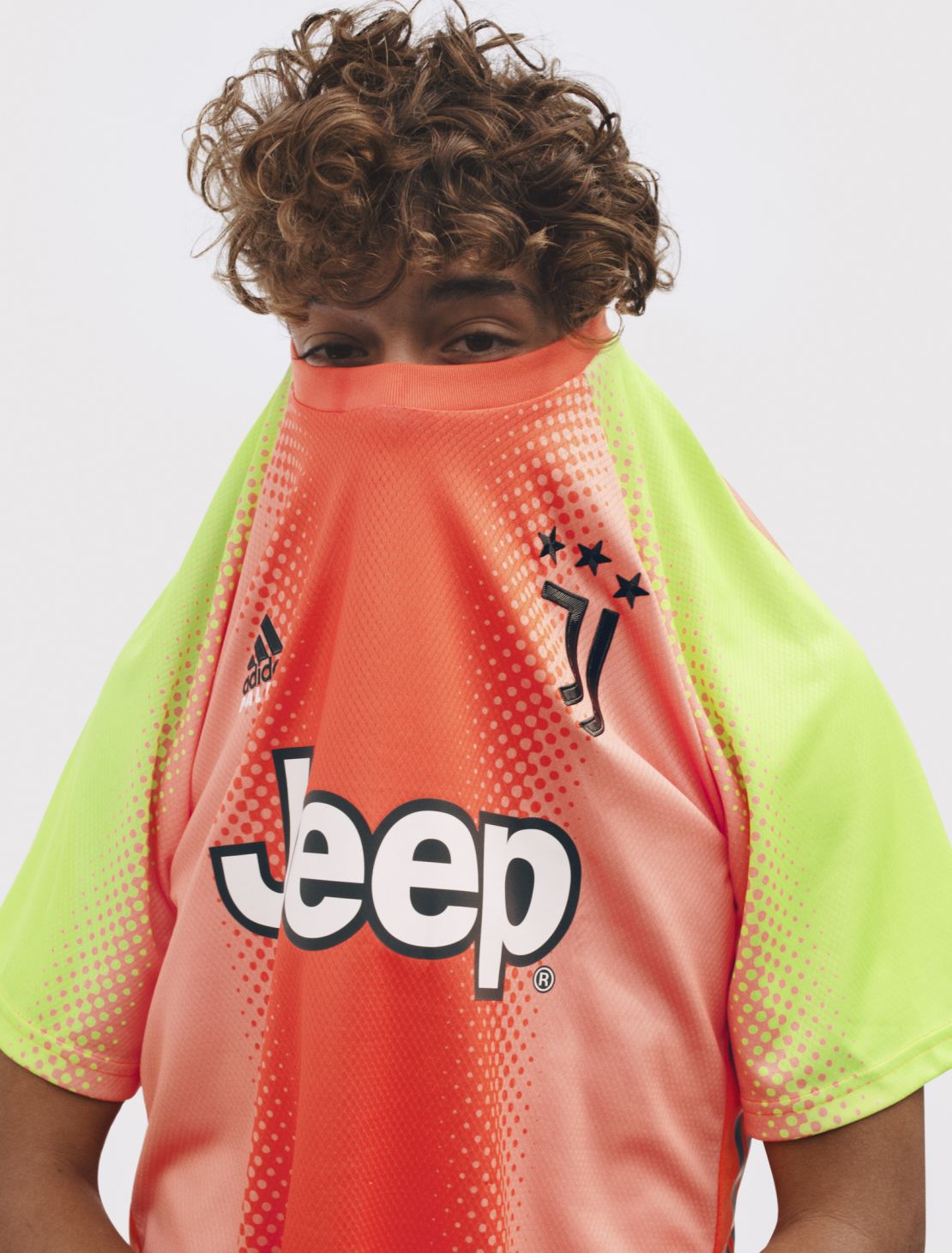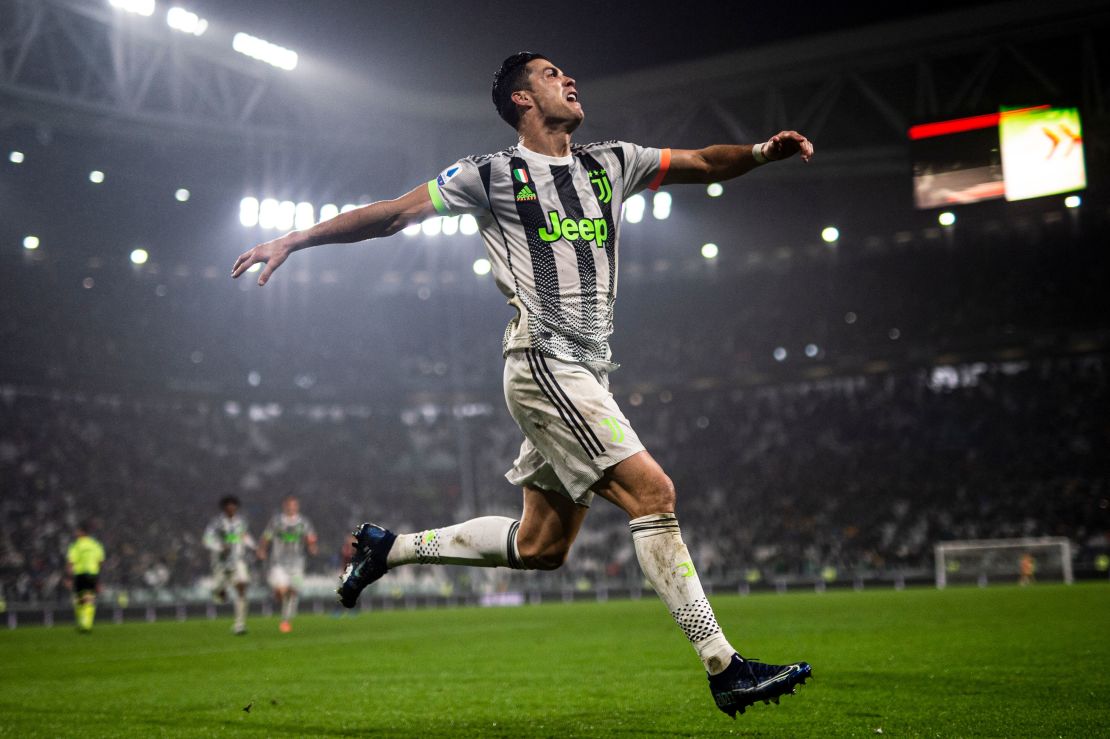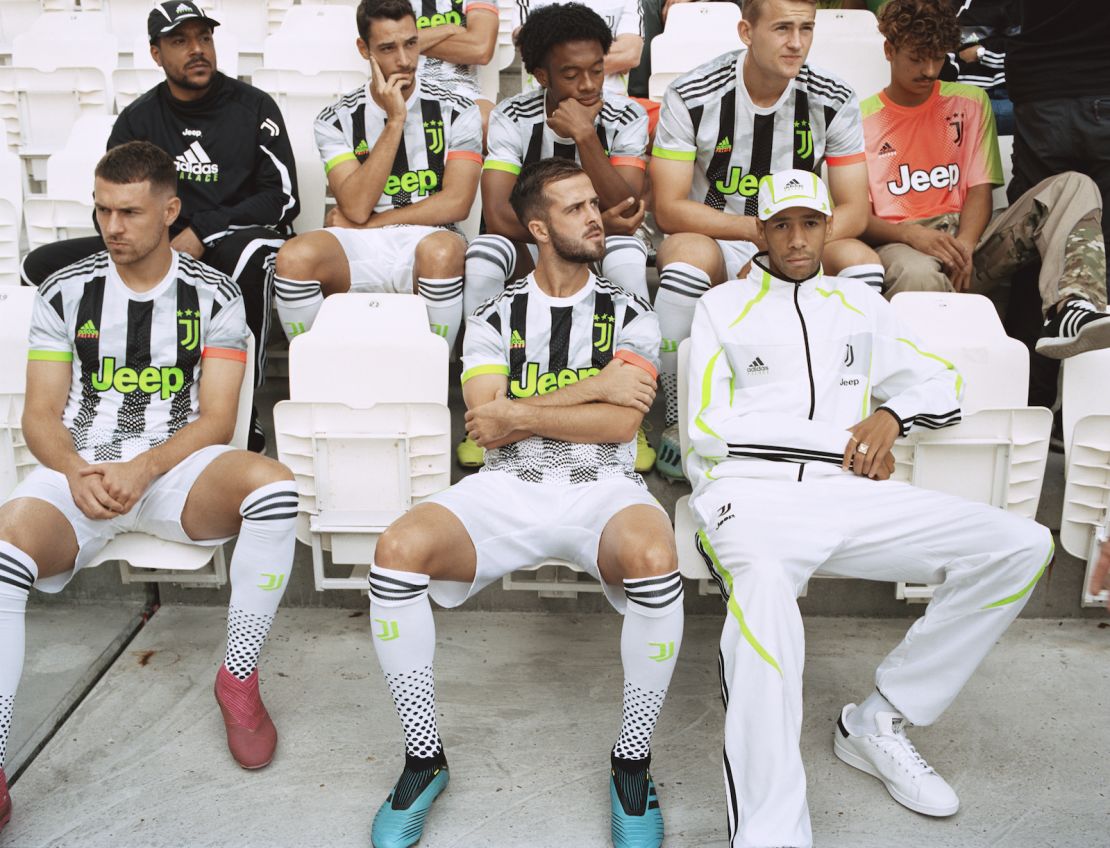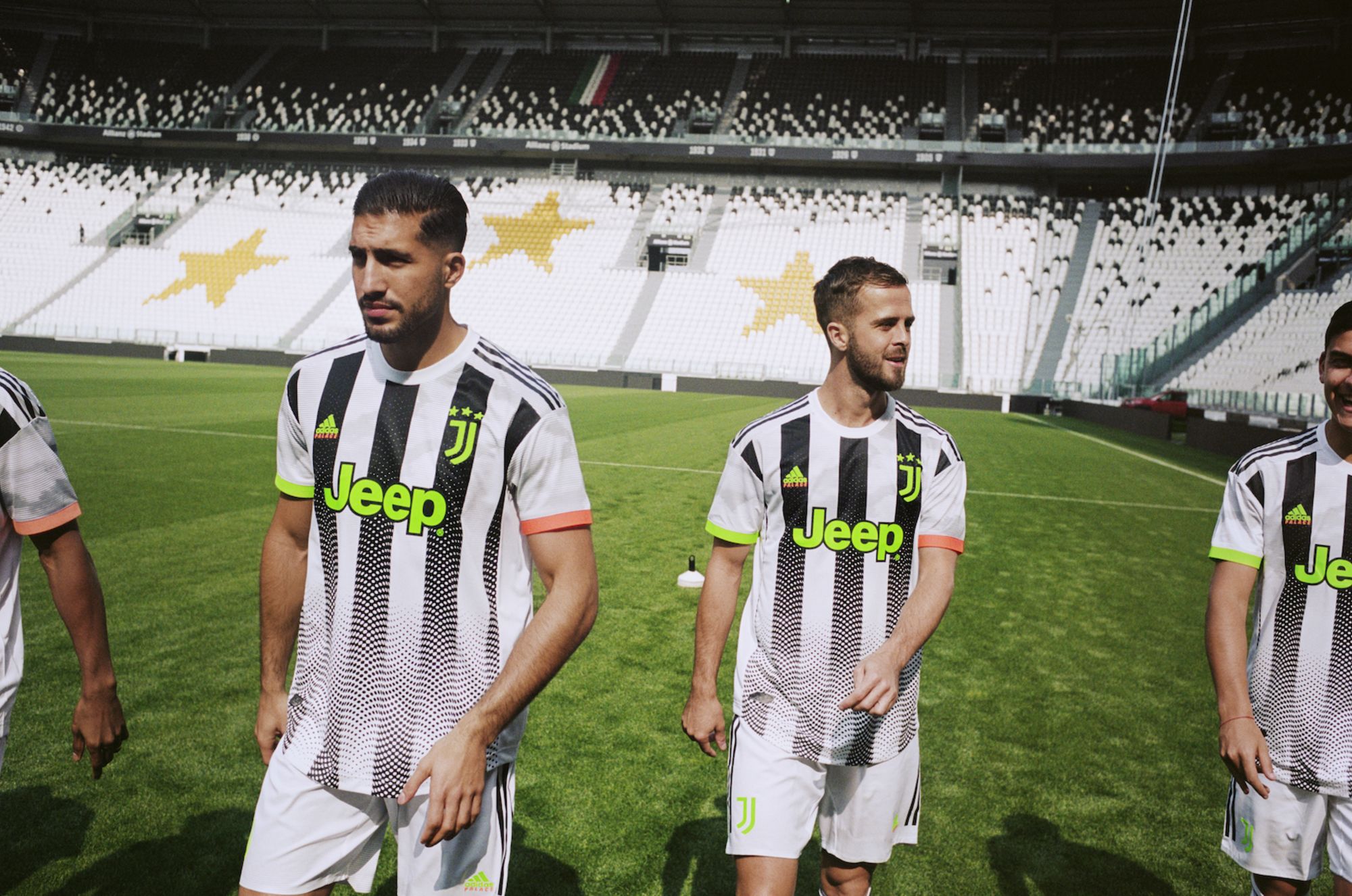Italy’s most successful soccer club, Juventus, has revealed its groundbreaking collaboration with cult skate brand Palace – and the apparel is generating the kind of hype usually reserved for major fashion labels.
The kit’s global launch resembled the type of social media “drop” now widely used to generate buzz around exclusive streetwear collections.
First, the club’s Instagram account teased shots of players arriving for their match against Genoa in new training gear. Then came the big reveal of the new “fourth” jersey (clubs typically only produce three designs per season) which features Palace x Adidas branding on Juve’s signature black-and-white stripes, complete with neon accents and spotted gradient design.

“For us, there’s not many teams we wanted to work with,” said Palace founder Lev Tanju. “Juve was just top of the list. For me, they are just one of the most iconic and chic football teams on the planet.
“They approached us to do something, and it all went on from there. We really just wanted to make something happen on (the) pitch rather than just make some dual-branded stuff. It’s been a dream for us to design a kit for them.”
Building a brand
For Juventus, conquering Italian soccer has never been a problem. The team is sitting top of Serie A, having won the title eight years in a row and 35 times in total.
But when it comes to establishing the club as a global brand – especially when you factor in competition from US sport giants like the New York Yankees, Chicago Bulls and Oakland Raiders, whose famous logos are adorned on leisurewear worldwide – then the mountain facing the team becomes dauntingly steep.
With soccer exploding in popularity across Asia and North America, the scramble among top clubs to attract new fans is highly lucrative. So how does a club make the crossover from domestic powerhouse to global brand powerhouse?

Most major clubs have already launched new media strategies on platforms like Twitter, YouTube and TikTok to communicate with a fans worldwide in their native languages and entice casual supporters. It’s now the norm for teams to travel beyond Europe on lengthy pre-season promotional tours.
Signing superstars with huge social followings and worldwide appeal, like Cristiano Ronaldo, also helps. But Juventus, nicknamed “The Old Lady,” has slowly and steadily been working towards a more revolutionary strategy – one that the Palace collaboration appears to play into.
“We’re looking to evolve into a brand keeping football at its core but seen as an experience provider for a wider audience – no matter who or where,” said Juventus’ chief revenue officer, Giorgio Ricci. “Whether it’s at our stadium or wearing a lifestyle product or through our social media content.

“The partnership with Palace is a pillar of the new strategy. We know that youngsters are keen to interact with the brand if it acts with authenticity, and that’s the base for everything.
“The collaboration with Adidas and Palace has given us the authenticity to enter the sports fashion market through the front door.”
Infiltrating wardrobes
If you’re unfamiliar with Palace, that may be because the 10-year-old brand positions itself as an elusive, underground skate label. But make no mistake, it’s a big player in the streetwear scene, which has found a massive market in Asia and North America.
Sported by celebrities from Drake to Jonah Hill, the young British label has established itself as a firm favorite among fashion editors, influencers and teenagers worldwide. And herein lies the appeal to the Italian soccer giant.
The new jersey and complementary leisurewear, featuring tracksuits, T-shirts, shorts and socks, go on sale Friday at Juventus, Adidas and Palace stores worldwide – with a Palace pop-up shop in Shanghai’s Arkham nightclub opening the door to a lucrative Chinese market.

But Juve isn’t the only soccer club attempting to infiltrate the wardrobes of fashion-conscious casual sports fan in emerging markets.
Paris Saint Germain, a French soccer powerhouse similarly lacking in global clout, has recently launched successful collaborations with Nike’s Air Jordan brand and cult streetwear label A Bathing Ape, helping the club attract A-list celebrity admirers such as Leonardo Di Caprio, Rihanna and Kendall Jenner.
Barcelona and Manchester City, meanwhile, made somewhat less successful forays into fashion. Their partnerships with Replay and Dsquared2, respectively, drew mixed reactions and proved that fashion experimentation – in any form – is a risky business. Simply wearing the hottest labels may not guarantee you credibility.
“The challenge is to engage our audience through activities and content which stand out from the crowd, being true and authentic to our brand DNA,” said Ricci. “US and China are key in our plan – most importantly the young generation, but we know how crowded the entertainment market is in those regions. The real competition is conquering the spare time of each individual.”
